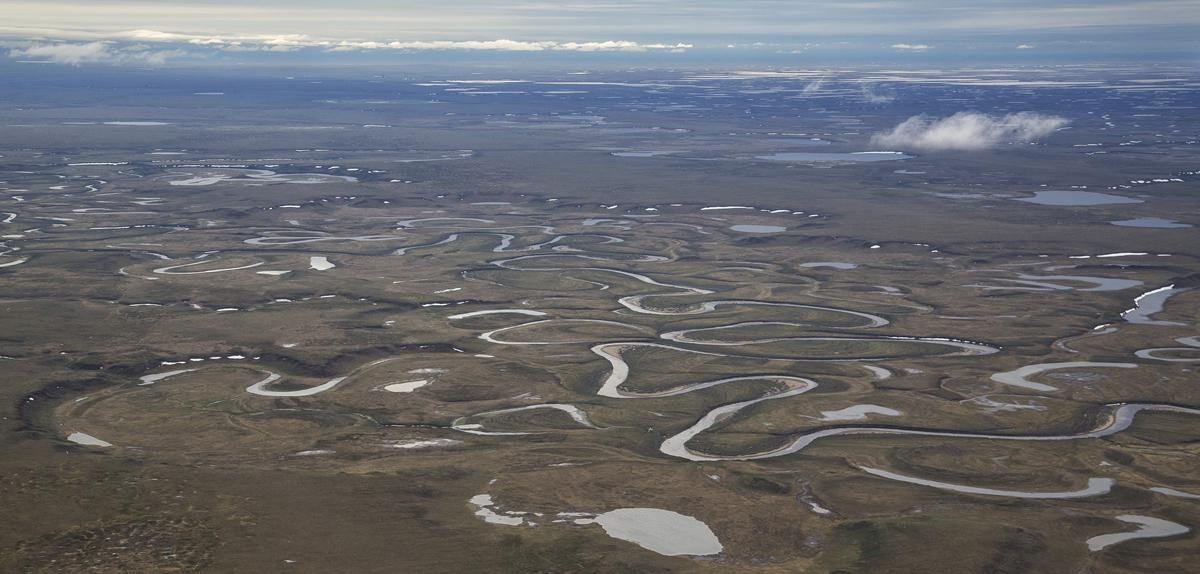A federal judge has blocked a drilling project in Alaska’s National Petroleum Reserve that would tap 600 million-barrels of oil.
The Willow project would produce as much as 160,000 barrels a day for ConocoPhillips and had the support of both the Trump and Biden administrations.
Judge Sharon Gleason of the US District Court ruled in favor of Indigenous and environmental groups, finding that the permitting process for the Willow oil and gas project failed to fully consider the impacts on the climate and wildlife.
Because this was a procedural ruling, it’s hard to say how much of a setback this is for the project, says Pat Parenteau, a professor of environmental law at Vermont Law School.
“The judge didn’t say, ‘You can’t drill.’ She really doesn’t have the power to do that. But [these are] the kinds of rulings that will take a long time for the Department of Interior to fix.”
“The judge didn’t say, ‘You can’t drill.’ She really doesn’t have the power to do that,” he explains. “But [these are] the kinds of rulings that will take a long time for the Department of Interior to fix. You can imagine this challenge of having to actually quantify how much additional carbon is going to result from leasing of this area in Alaska. It’s a really complicated thing. It’s going to take some time to do that.”
Correcting errors in environmental impact statements requires repeating the entire process, including an opportunity for public comment and a reexamination of the project’s effects under the Endangered Species Act, Parenteau adds. “So, my estimation is, if this decision is not overturned by the 9th Circuit, it’s going to take more than a year to go back through all of this review and assessment and outreach before they could move forward again,” he says.
Related: Can Alaska rely on oil and address climate change? State officials are about to find out.
This gives the Biden administration the opportunity to take a second look at the project and decide if a particular amount of leasing or production is no longer justified, but Parenteau believes that is a long shot.
“This area was set up to be developed,” he explains. “Obviously, there’s tremendous political support within Alaska for this development…. So, I think it’s very unlikely, honestly, that the Biden administration is going to cancel these leases. Among other things, that would cost a lot of money. I think this leasing actually is probably going to go forward, maybe in a way that has less impact on this sensitive Alaskan area.”
Related: Drilling in the Arctic National Wildlife Refuge is more likely now than ever before
The Biden administration threw its support behind the Willow project, despite blocking other oil and gas activity in the nearby Arctic National Wildlife Refuge, so its overall strategy on oil and gas leasing on federal lands remains a bit muddled. Parenteau believes the Biden administration is sincere in saying it wants to wind down oil and gas leasing, but is finding out it’s more difficult to do than they thought.
“People have to temper their expectations about how quickly we’re going to see an end to oil and gas leasing.”
“There are legitimate legal questions about how far and how fast the Biden administration can go in ‘ending oil and gas development,’ even on federal land, and in offshore waters like the Gulf of Mexico and others,” he explains. “So what I would say is people have to temper their expectations about how quickly we’re going to see an end to oil and gas leasing.”
But if the administration wants to meet its targets of creating an energy sector that’s carbon neutral by 2035 or 2040, “they’re going to have to severely curtail oil and gas development. And then, of course, as that happens, we’ll have to see what Congress’s response is — not only the Congress we have today, but the Congress we’re going to have after the midterm elections, and of course, ultimately, in 2024.”
Related: Trump administration tries to sell off Arctic wildlife refuge in its final days
Department of Interior Secretary Deb Haaland has promised to deliver to Congress a report on a review President Biden ordered of the country’s oil and gas program.
“We know that this report is going to contain proposed revisions to the oil and gas leasing program,” Parenteau says. “For example, it’s going to require a lot more rigorous analysis of the climate effects of all this leasing. It’s going to require imposing what’s called the social cost of carbon in the analysis of whether further leasing is justified. It’s going to increase the amount of royalties that have to be paid for these oil and gas leases. So, all of that is pointing in the direction of less, not more leasing.”
Nevertheless, the Interior has announced that it will comply with a Louisiana judge’s court order to lift a moratorium on new oil and gas leases — even while it continues to appeal that ruling.
In a statement, the Interior Department said it will “conduct leasing in a manner that fulfills Interior’s legal responsibilities, including to take into account the programs’ documented deficiencies.”
This article is written by Adam Wernick, based on an interview that aired on Living on Earth from PRX.
